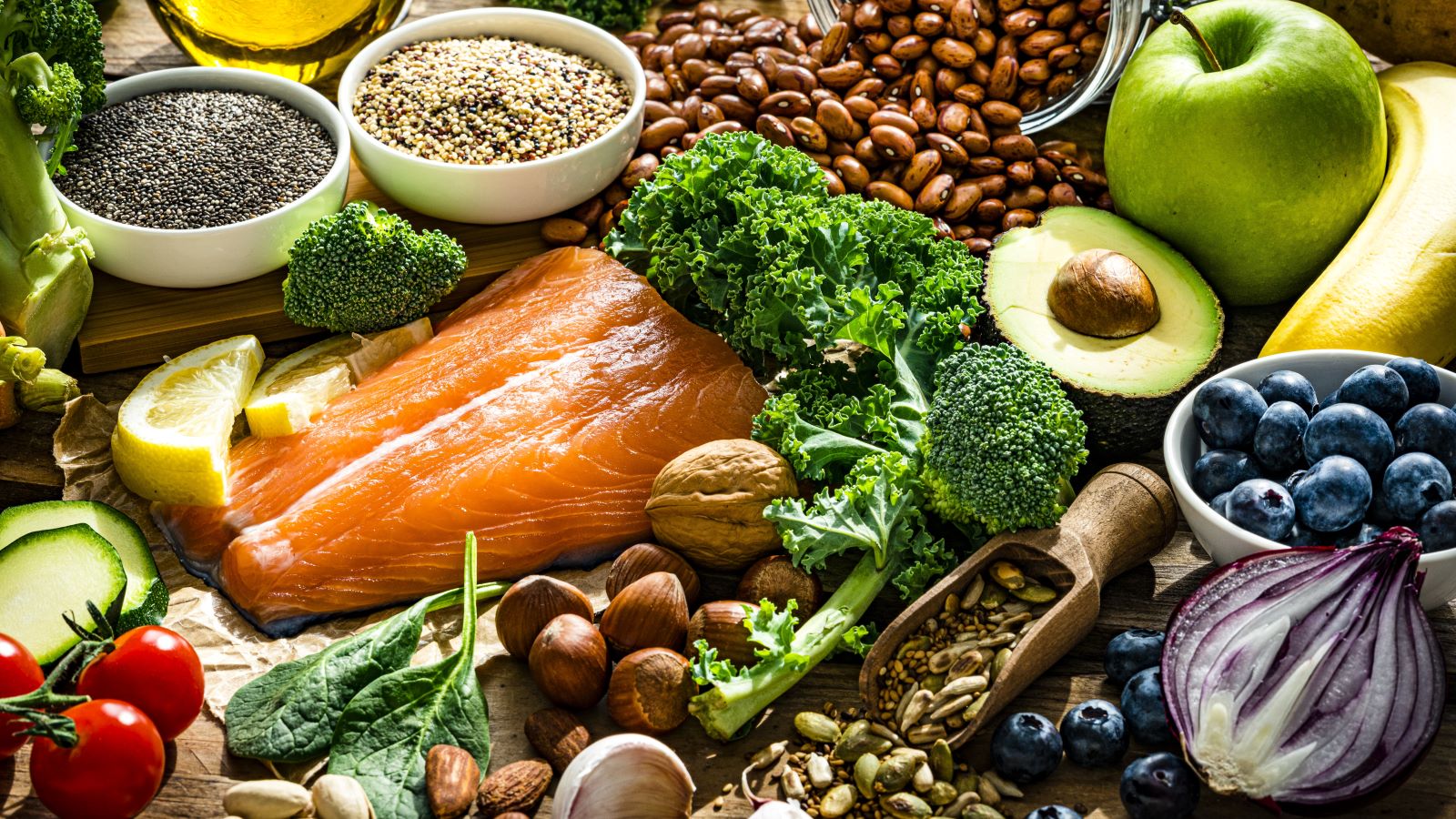<< Back
Is the MIND Diet the Secret to Brain Health?

September 15, 2025
You know what you eat affects your heart and your physique – but does it also affect your brain?
According to some research, it might.
That’s why we asked an expert how the MIND diet works, and why it might be worth trying.
But first, what is the MIND diet?
The MIND diet combines two of the healthiest eating styles out there: the Mediterranean diet and the DASH diet.
By focusing on the best brain-boosting elements from each, researchers were able to put together the MIND diet – aiming specifically to reduce the risk of Alzheimer’s.
“The MIND, or ‘Mediterranean-DASH Intervention for Neurodegenerative Delay’ diet is plant and fish based, and limits dairy. It’s really just a smart, practical way of eating, that may also support brain health,” says Ulysses Wu, MD, with Hartford HealthCare. “There have been studies suggesting that this style of eating can reduce the risk of developing Alzheimer’s. However, these are observational studies, and the short-term studies that exist have not shown a difference in cognition.
And even if you don’t follow it to the letter, you’re still likely to reap some benefits.
“The beauty of the MIND diet is its flexibility,” says Dr. Wu. “You don’t have to follow it perfectly to get results — even small changes can make a difference.”
Here are a few of the key foods.
The MIND diet isn’t about counting calories or cutting out everything you enjoy. Instead, it leans into whole foods that are already known to be good for your brain, like:
- Leafy green vegetables like spinach, kale or arugula
- Other vegetables – the more colorful, the better
- Berries, especially blueberries and strawberries
- Nuts
- Whole grains
- Beans
- Fish, especially fatty fish, like salmon
- Poultry
- Olive oil
“It’s all about choosing foods that reduce inflammation and support brain cell function,” says Dr. Wu.
> Related: The 8 Best Fruits for Your Health
Are there any foods to avoid?
And it’s not just about what you add to your plate. There are also a few foods that don’t do your brain any favors — and the MIND diet recommends enjoying them less often.
Try to limit:
- Red meat
- Butter and margarine
- Cheese
- Pastries and sweets
- Fried or fast food
“But keep in mind, this doesn’t mean you can never eat those foods again,” says Dr. Wu. “It just means you should enjoy them occasionally, not as everyday staples. It may be a cliché, but moderation is key.”
> Related: Is Red Meat Bad for Your Heart?
A sample day on the MIND diet.
So what does it actually look like when you put this all together? The beauty of the MIND diet is that it doesn’t require fancy ingredients or complicated recipes.
Here’s a sample day to get inspired:
- Breakfast: Oatmeal topped with blueberries and chopped walnuts.
- Lunch: Salad with leafy greens, chickpeas, cherry tomatoes and olive oil dressing.
- Snack: A handful of almonds or strawberries.
- Dinner: Grilled salmon with quinoa and roasted broccoli.
- Quick treat: A square of dark chocolate.
“It’s about eating real food, not restricting yourself,” says Dr. Wu. “What’s great about the MIND diet is regardless of its impacts on brain health, it is still a healthier style of eating. And the best part is, it’s food that actually tastes good.”